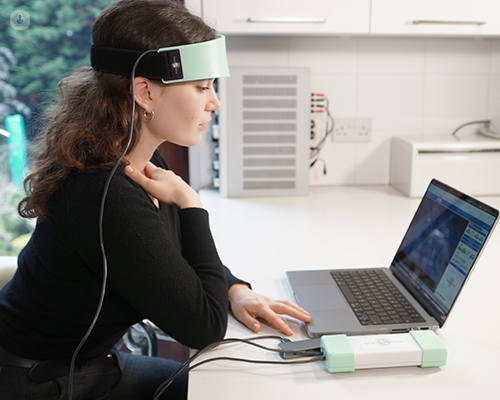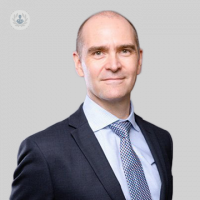Neurofeedback: How does it work?
Written in association with:Leading consultant psychiatrist Dr Thomas Dannhauser explores neurofeedback, including what it is, how it is done and what it involves.

What is neurofeedback?
Neurofeedback, also known as neurotherapy or neurobiofeedback, is a specialised form of biofeedback. This process uses sensitive instruments to increase our awareness of physiological functions by providing real-time displays of brain activity, thereby aiding in the self-regulation of brain function.
Why is it done?
Neurofeedback measures brain functioning related to thinking patterns (attention, memory etc) and emotions, in turn producing a signal which helps to teach self-regulation of brain function. The feedback signal is usually provided using video, and positive feedback is given for desired brain activity, while negative feedback is given for undesired brain activity.
Brain cells generate measurable signals when they are active, including electrical, optical, and magnetic signals. These brain signals correspond to how we think, feel, act, and how we function. You can get a very useful idea of a person's brain function simply through brain signals. Neurofeedback seeks to help change brain function and improve brain fitness to correct problems with attention, memory, speech, behaviour and mood which which affect people in their daily lives.
What does it involve?
First, an in-depth analysis is made of the individual’s mental and physical health, and areas of concern are identified.
Once these factors are identified, a neurofeedback session is scheduled. In this session, the patient sits in a quiet space with special sensors attached to their head to monitor brain activity.
In this session, the patient remains in a quiet area with specialised sensors placed on their head to monitor brain activity. They get feedback on targeted brain functions, and are trained to use the feedback to take more control of aspects of brain function. Repeated training allows greater control over time.
Neurofeedback is non-invasive and works by manipulating the brain, rather than forcing change with electrical or magnetic pulses.
How effective is it?
The benefits range from medium to large in ADHD. It is important to take into account that there are different types of neurofeedback (EEG, fNIRS, fMRI) and different approaches. It is therefore advisable to ask about the success of the type and the service you are considering. Look for premium services that offer a money-back guarantee if possible.
How do you prepare for neurofeedback?
After identifying these factors, a neurofeedback session is scheduled. In this session, the patient sits in a quiet area with special sensors attached to their head to monitor brain activity.
Aftercare
No specific aftercare is required except ensuring you attend the subsequent scheduled sessions.
If you would like to book a consultation with Dr Dannhauser, simply visit his Top Doctors profile today.


